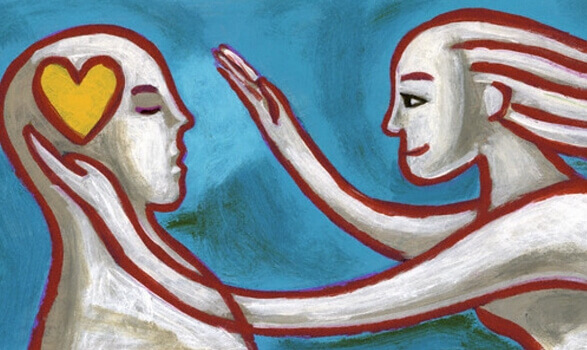Feared scenarios are events in which there’s an underlying fear. They might’ve already happened and you’re afraid that they’ll happen again or are those from a nightmare that you fear will become a reality. Your initial instinct may be to run away from them and stop thinking about them. However, it’s in facing them with the tools that we mention in this article, that give you power over them.
Knowledge makes you powerful. Therefore, knowing your feared scenarios, elucidating the fears that we all share, and visualizing the steps that separate these scenarios from your current situation increases your control. In fact, you need to face your fears head-on.
Types of scenarios: the current, the feared, and the desired
In humanistic psychotherapy, such as psychodrama or Gestalt psychology, they work with the feared, desired, and current scenarios. These events are represented realistically, with intermediary objects or co-therapists, so that your brain feels that they’re really happening.
A feared scenario is one that makes you afraid when you think it’ll happen in a more or less distant future. Desired scenarios are those that contrast with the feared scenarios and project hope. The current scenario defines the state or situation you’re in in the here and now.
These scenarios can relate to multiple contexts and life stages. For example, a dreaded couple scenario in which you fear a breakup and loneliness. On the other hand, the desired scenario might be your relationship prospering or you fearlessly facing loneliness. You also dramatize your current personal and couple scenario.
Once these scenarios have been clarified, the therapist talks about inter-scenario spaces. In other words, those that separate your current situation from what you fear or desire. You might be asked to answer these questions: What would have to happen now for you to end up in your feared or desired scenario? What can you do to prevent or promote it?
The feared scenarios we all share
Although feared scenarios may differ from person to person, there are certain components that underlie all fears. Generally, this is a real or imaginary fear of suffering harm and is usually related to the following aspects:
- Fear of death. A universal fear from which the basic survival instinct is born. The feared scenes may be related to the fear of suffering illnesses, phobias of certain objects, etc.
- Loneliness. The fear of not being accepted and valued as a member of a group. They’re related to feared scenarios that involve abandonment and jealousy, among others.
- Loss of autonomy. Experiencing fear at the thought that, in some way, you lose control of your own body and are at the mercy of the external. These feared scenarios are linked to being locked up. Physically, as in claustrophobia, or emotionally, as in a couple commitment, for example.
- Damage to the ego. The fear of losing your personal integrity. Scenarios of humiliation, shame, or disapproval from others are some examples of possible feared scenarios.

Why’s it necessary to know your feared scenarios?
Feared scenarios are those situations that make you afraid, as opposed to your desired scenarios. Psychotherapy dramatizes these scenes, as well as the inter-scenario spaces. These are the events that would have to occur for your current situation to become the feared or desired one.
Feared scenarios can lead to a situation of blockage at an emotional level as well as certain illnesses. When this happens, you’ll avoid thinking and learning about this feared scenario in any way you can and try not to reproduce it. However, your lack of knowledge can mean that these ways of coping not only don’t solve the problem but end up triggering what you fear.
For example, if your feared scenario is related to abandonment, you might take protective actions to avoid that fear, such as trying to emotionally alienate people close to you. Nevertheless, this distance can trigger the rupture of the bond with these people, bringing with it your feared scenario.
Not understanding your own feared scenarios limits you and makes you stay in your comfort zone where you think you can’t be harmed. However, it makes you miss opportunities and limits the flow of spontaneity. Therefore, looking inward and knowing your fear puts you in a position of power. Going into your feared scenarios and dissecting them gives you strength. Self-knowledge is power.
The post What Are Your Feared Scenarios? appeared first on Exploring your mind.



















Comments